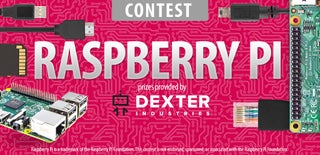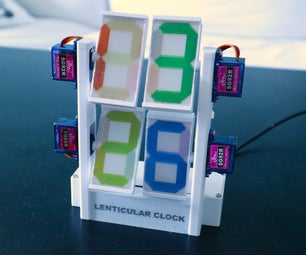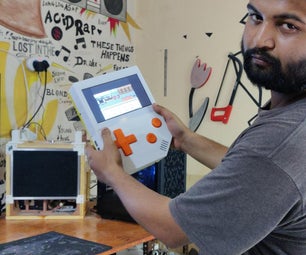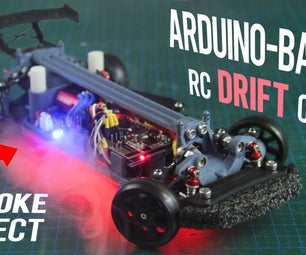Introduction: Convert a Laptop Screen Into a Smart Screen.
I had several broken laptops sitting around, so I decided I would make a smart screen out of one of them.
ITEMS REQUIRED:
1. Laptop Screen
I pulled mine from an old laptop.
2. 2 Picture frames, larger than laptop screen
I bought these two from Michael's when they were having their "buy one get one" on these frames.
3. LCD controller Board Kit, and Kit Power Supply
Ebay is your friend here. I purchased mine from here: http://stores.ebay.com/eqstore/
EDIT: Many Many people have asked how to get the correct LVDS board. This is what I have to say about it.
The way I found my board was to search the ebay stores selling the LVDS boards for my LCD screen's model number. as an alternative I have heard and read many times of people emailing the ebay store with details of thier LCD screen, and letting the seller help them find the right one. I know they sell many different boards, each with it's own set of features. Some of them have VGA only, some of them have no audio, some of them have HDMI, audio, VGA and RCA. Know what features you want your board to have and your LCD screens model number and send them an email.
4. Raspberry Pi/Amazon Firestick/Chromecast (whatever you want to display)
5. Short HDMI cable
At the time I am writing this I don't actually have it, but I got one for a couple bucks on Amazon.
6. Frame Hardware
I bought the hinges and the hanging eyelets from ACE, and I pulled the lock off of a craft box from Jo-Ann Fabrics.
7. Foam Board
Purchased this at Michael's as well, you can get it at any craft store.
8. Miscellaneous Wires
I had mine left over from other Raspberry Pi / Arduino projects
9. Laptop Speakers
This isn't a requirement but is cool if you want to do other things than just display photos.
10. Velcro
Tools Used:
- Drill
- Soldering Iron, Solder
- Micro screwdriver kit
- Laptop (for programming the raspberry pi and testing)
- X-Acto blade
- Ruler
- Hot-glue gun
- Glass cleaner
Step 1: Prepare the Screen and Frames.
1.You need to make the LCD screen sit center in the frame and not move around.
I used foam board, and cut it to the size of the inside of the frame. The frames I bought had a double mat that was approximately the depth of the LCD screen, and the thickness of the foam board. I removed the double mat, cut a center hole in the foam board the size and shape of my screen, and it fit perfectly.
2. Cut a mat for the screen.
Using the frame's demo photo page, I cut a thin mat to fit the screen as close as possible. An easy way to do this is to use the old laptop's bezel.
3.Secure the glass on the back frame.
On the second frame, I hot-glued the glass to the inside of the frame so it wouldn't come out, and would cover but show the electronics on the back of the frame.
4.Add your frame hardware.
I added the hardware hinges, clasp, and hanging loops, being careful to drill pilot holes so the thin wood frame wouldn't split.
5.Clean the glass and put the LCD in place.
I cleaned the front glass of debris from drilling with some glass cleaner then put the thin mat I cut from the demo photo into the frame. I then placed the screen centered in the foam board on top.
6. Prep the front frame back and lock in place.
After placing the front frame's backer on the stack, and marking where the LCD cables are, I cut holes in the backer, threaded the cables through the the holes and put the backer in place, locking the screen into the front frame.
Step 2: Prepare and Attach the New Hardware.
1. Lay out and plug all your hardware in to make sure it works.
I plugged everything into the controller board, the data cable and back-light power cables from the screen and power inverter, and the menu button pad. I plugged the controller board's power supply in, and the HDMI cable from the Raspberry Pi. The Raspberry Pi was powered off of a USB charger, even though I knew that was going to change later. I wanted to test it to make sure it all worked.
2.Solder and test the connections to the speakers, and to the Raspberry Pi.
I wanted to power the Raspberry Pi off of the LCD controller board, but I didn't want to make the Raspberry Pi permanent so I used cables that could plug into each other and soldered two to the Raspberry Pi's power pads (before the fuse) , and two to the +5v and GRD pads that were marked "Power Output" on the LCD controller board. I also soldered two speakers I salvaged from a laptop onto the LCD controller boards pads marked for "Audio Output" I then plugged everything in and tested to make sure it worked.
3. Attach the hardware to the front screen's backer.
I wanted a way to easily disassemble the boards from the backer, so I decided to use Velcro. I attached strips to each board and stuck them in place so they would stay in place. After the main LCD controller board was in place, I decided to drill a hole in the side between the two frames to allow for the power cord.
Step 3: Decide What You Are Going to Display and Enjoy!
RASPBERRY PICTURE FRAME SLIDESHOW OS.
I used Raspberry Picture Frame Slideshow OS for the Raspberry Pi OS because I wanted to make sure it was dead simple for someone to add photos to the frame if needed. This OS allows you to add photos via a USB drive, or by configuring WiFi and downloading them from a web album. You can get Instructions for download and installation here: http://www.binaryemotions.com/raspberry-slideshow-...
AMAZON FIRE STICK RUNNING KODI.
Alternatively I plugged in a Amazon Firestick running KODI so I could listen to my music while testing. I used this Instructable here : https://www.instructables.com/id/Kodi-on-Amazon-Fir...

Runner Up in the
Raspberry Pi Contest 2016

Participated in the
Digital Life 101 Challenge







